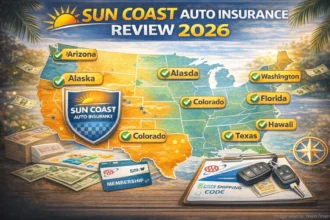In the bustling financial landscape of San Francisco, credit unions and community banks play a vital role in providing personalized banking services to residents and businesses alike. These member-owned institutions often offer competitive rates, lower fees, and a strong focus on community involvement. This comprehensive guide will explore San Francisco’s Best Credit Unions and community banks, helping you decide where to entrust your financial needs.
Credit Unions in San Francisco

San Francisco Fire Credit Union
Founded in 1951 by firefighters, San Francisco Fire Credit Union has grown to become one of the most respected financial institutions in the Bay Area. With a strong commitment to its members and the community, this credit union offers a wide range of services tailored to meet diverse financial needs.
Key Features:
- Lower fees compared to traditional banks
- Free access to ATMs nationwide
- Online, in-app, and in-branch services
- Competitive rates on loans and savings accounts
Who Can Join: Originally established for firefighters, membership is now open to anyone who lives, works, or attends school in San Francisco, San Mateo, or Marin counties.
Patelco Credit Union
With a history spanning over 87 years, Patelco Credit Union has established itself as a trusted financial partner for many Bay Area residents. This credit union is known for its innovative products and commitment to financial education.
Key Features:
- Early access to direct deposits (up to two days early)
- Various loan and investment options
- Robust online and mobile banking platforms
- Financial wellness programs and resources
Who Can Join: Membership is open to individuals who live, work, or worship in a wide range of Bay Area cities and counties. Additionally, alumni of many Bay Area colleges and members of the Financial Fitness Association are eligible.
Provident Credit Union
Provident Credit Union, initially established in the 1950s to support the California Teachers Association, has expanded its reach to serve a broad cross-section of the Bay Area community.
Key Features:
- High-yield money market accounts
- Youth savings accounts
- Round-up savings program
- Competitive loan rates
Who Can Join: Residents and employees in five of the nine Bay Area counties qualify for membership, as well as members of local Chambers of Commerce.
Redwood Credit Union
Since its inception in 1950, Redwood Credit Union has experienced steady growth, now serving over 100,000 members with assets exceeding $3 billion.
Key Features:
- Solar and construction loans
- Youth and teen banking accounts
- Holiday savings accounts
- Early access to direct deposits
Who Can Join: Membership is open to anyone who lives, works, or owns a business in the North Bay, San Francisco, or Contra Costa County. Family members of existing members are also eligible.
San Francisco Federal Credit Union
San Francisco Federal Credit Union prides itself on offering competitive rates and a wide range of financial products to meet the diverse needs of its members.
Key Features:
- No overdraft fees on checking accounts
- Access to 30,000 fee-free ATMs in the U.S. and Canada
- Competitive rates on personal loans and credit cards
- Debt consolidation options
Who Can Join: Individuals who live, work, worship, or attend school in San Francisco or San Mateo Counties are eligible for membership, as well as immediate family members of existing account holders.
READ ALSO: Top Wealth Management Firms in San Francisco
Community Banks in San Francisco
Bank of San Francisco
Bank of San Francisco is a locally owned and operated community bank that focuses on providing personalized banking services to businesses and individuals in the Bay Area.
Key Features:
- Tailored business banking solutions
- Personal banking services with a local touch
- Online and mobile banking platforms
- Community involvement and support
First Republic Bank
While First Republic Bank has expanded beyond its San Francisco roots, it maintains a strong presence and commitment to the local community.
Key Features:
- Private banking services
- Wealth management
- Business banking solutions
- Competitive mortgage rates
Bank of the West
With a history dating back over 130 years, Bank of the West offers a blend of traditional banking services and modern financial solutions.
Key Features:
- Sustainable banking initiatives
- Diverse personal and business banking products
- Mobile banking app with advanced features
- Investment and wealth management services
Comparing Credit Unions and Community Banks
When choosing between credit unions and community banks in San Francisco, consider the following factors:
- Membership Requirements: Credit unions often have specific membership criteria, while community banks are typically open to all local residents and businesses.
- Interest Rates: Credit unions generally offer higher savings rates and lower loan rates compared to banks.
- Fee Structure: Credit unions tend to have lower fees, but community banks may offer more competitive fee structures than larger national banks.
- Product Range: Community banks might offer a broader range of products and services, especially for businesses.
- Technology: While both types of institutions invest in technology, larger community banks may have more resources for advanced digital banking features.
- Personal Service: Both credit unions and community banks pride themselves on providing personalized customer service.
- Community Involvement: Credit unions and community banks are typically deeply involved in local community initiatives and support.
Choosing the Right Financial Institution for You
To determine the best credit union or community bank for your needs in San Francisco, consider the following steps:
- Assess Your Financial Needs: Identify the products and services that are most important to you, such as savings accounts, loans, or business banking services.
- Check Eligibility: For credit unions, ensure you meet the membership requirements before applying.
- Compare Rates and Fees: Look at interest rates on savings accounts and loans, as well as any fees associated with accounts or services.
- Evaluate Convenience: Consider the location of branches and ATMs, as well as the quality of online and mobile banking platforms.
- Read Customer Reviews: Look for feedback from current members or customers to gauge satisfaction levels.
- Consider Future Needs: Think about potential future financial requirements and whether the institution can accommodate your growth.
Benefits of Choosing Local Financial Institutions
Opting for a San Francisco-based credit union or community bank can offer several advantages:
- Local Economic Support: These institutions often reinvest in the local community, supporting small businesses and local initiatives.
- Personalized Service: Smaller institutions can provide more tailored services and build stronger relationships with their customers.
- Faster Decision Making: Local banks and credit unions can often make quicker decisions on loans and other financial matters.
- Community Understanding: These institutions have a better grasp of local economic conditions and challenges faced by San Francisco residents and businesses.
- Competitive Rates: To compete with larger banks, local institutions often offer more attractive rates on loans and savings products.
Conclusion
San Francisco’s vibrant financial ecosystem offers a diverse range of credit unions and community banks, each with its unique strengths and focus. Whether you prioritize high savings rates, low-fee checking accounts, personalized service, or community involvement, there’s likely a local financial institution that aligns with your needs.
By choosing a credit union or community bank in San Francisco, you’re not just making a decision about where to keep your money – you’re also investing in the local economy and supporting institutions that have a vested interest in the city’s prosperity. As you explore your options, remember to consider both your current financial situation and your future goals.
Ultimately, the best choice will depend on your individual circumstances, preferences, and financial objectives. Take the time to research, compare options, and even visit local branches to get a feel for the institution’s culture and service quality. With the wealth of options available in San Francisco, you’re sure to find a financial partner that can help you achieve your financial goals while supporting the local community.
FAQs
Q: Are credit unions safer than banks in San Francisco?
A: Both credit unions and banks can be safe options, provided they are insured. Credit unions are insured by the National Credit Union Administration (NCUA), while banks are insured by the Federal Deposit Insurance Corporation (FDIC). Both provide protection up to $250,000 per depositor.
Q: Can I use ATMs from other banks if I join a credit union?
A: Many credit unions in San Francisco participate in shared ATM networks, allowing members to use ATMs from other credit unions and even some banks without fees.
Q: Do community banks offer the same range of services as larger national banks?
A: While they may not offer every service provided by national banks, community banks in San Francisco typically offer a comprehensive range of personal and business banking services, often with more personalized attention.
Q: Are there any disadvantages to using a credit union?
A: Potential drawbacks might include fewer branch locations, limited product offerings compared to larger banks, and potentially less advanced technology platforms. However, these vary by institution.
Q: Can I open an account with a San Francisco credit union if I don’t live in the city?
A: Many credit unions have expanded their membership eligibility beyond city limits. Check the specific requirements for each institution, as you may qualify based on work, family connections, or other factors.
In another related article, Sustainable and ESG Investing in San Francisco: A Comprehensive Guide





